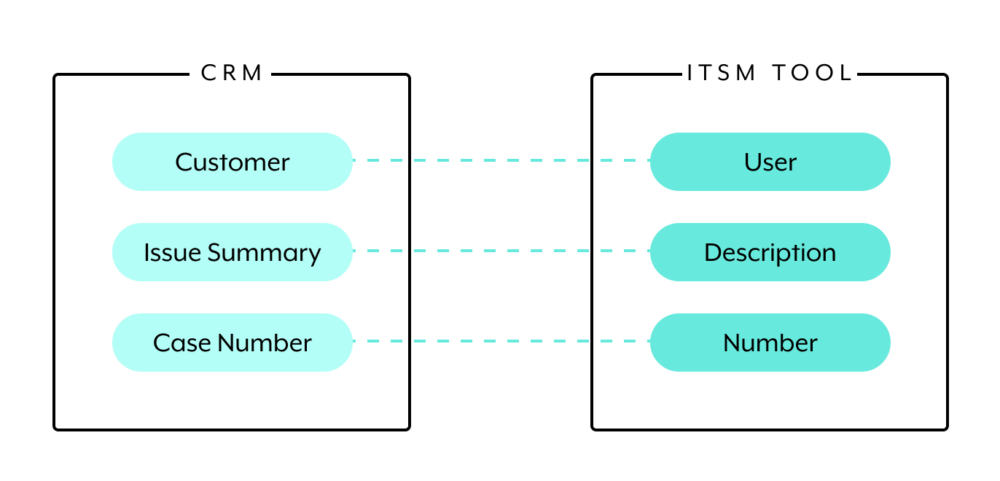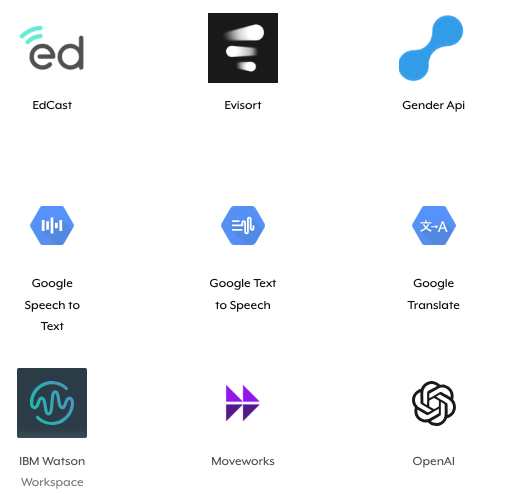Enterprise application integration (EAI) allows organizations to connect their SaaS applications and on-premises systems with one another, typically via application programming interfaces (APIs), in order to sync data and automate business processes.
To help you determine whether enterprise application integration is worth performing at your organization, we’ll highlight its top benefits.
1. Removes data silos
Data silos, or when information lives in a certain application or set of applications, can lead to a variety of issues. Employees, for example, may be unaware of certain types of data, as the data doesn’t live in the apps they rely on. In addition, if employees are aware of a certain type of data but can’t find it in their apps, they’re forced to request access to it—and the request can take time to submit and get processed.
Enterprise application integration can help break down many existing silos, as employees can access additional information within the applications they already use.
2. Improves productivity
By syncing data across applications, employees can spend less time on tedious, unproductive tasks, like searching for information across applications or re-entering data across applications, and focus more on activities that are likely to impact the business. This can take different forms, depending on the team: Sales can allocate more time on crafting personalized emails to prospects; customer success managers can invest more effort in supporting at-risk accounts; HR can dedicate additional time towards engaging target candidates, etc.

3. Prevents human errors
Re-entering data manually can lead to costly mistakes, from inputting the incorrect charge on an invoice to adding an inaccurate salary in a candidate’s offer letter.
EAI can help minimize these human errors as it mitigates the amount of data entry employees perform day-to-day.
4. Enables automation use cases
Once you’ve integrated your applications, you can go a step further by automating the business processes that work across these applications.
For example, say you’ve connected an application tracking system with your HRIS, identity and access management tool, and IT service management tool. You can then automate your employee onboarding process to work as follows:
5. Enhances the employee experience
EAI empowers employees to focus on the tasks that are not only more important to the business but are also more enjoyable and rewarding to perform. For instance, support reps can spend less time keying in details on a ticket across apps and, instead, dedicate more of their attention to resolving challenging issues on a client’s behalf.
Over time, this will help your organization employ a more engaged and satisfied workforce, which will help your organization in the way of productivity gains, lower turnover, among other benefits.
6. Uplevels the client experience
With manual tasks largely out of the way for customer-facing employees, they’ll be able to deliver improved client experiences, such as offering proactive and thoughtful outreach, responding to issues faster, and developing solutions that address key client needs.
7. Increases business agility
As organizations mature, the technologies they use and the processes they deploy will evolve.
An EAI tool can help your organization accommodate to such changes over time with little friction by offering a low-code/no-code UX and pre-built application connectors for a wide range of apps and databases. Both components will allow your team to modify connections and integration processes and build new ones from scratch quickly and easily.
8. Supports connectivity with different AI tools
As different types of AI continue to emerge and evolve, the integration use cases for AI will only grow.
An EAI platform can help you capitalize on the latest developments in the space by offering up connectors with AI and ML models, such as those provided by OpenAI or IBM Watson.

Related: How to implement AI-powered automations
9. Offers enterprise-grade governance and security controls
The applications and systems you’re connecting likely collect and store sensitive information on your business, clients, prospects, and employees. Keeping this data secure is critical for maintaining compliance with various data protection and privacy regulations, passing security audits, and, perhaps most important, preserving trust with key stakeholders.
To help protect your data and applications, an enterprise application integration platform can offer features like fine-grained, role-based access control, enterprise key management, and audit logs.
Perform EAI and much more with Workato
Workato, the leader in enterprise automation, comes with all of the benefits highlighted in this article.
Our low-code platform also provides Workbot®, a customizable platform bot that allows employees to trigger and interact with automations from Slack or Microsoft Teams; Workflow Apps, to help you build interactive and integrated workflow applications; an Embedded Platform that lets organizations use Workato for building integrations to their own product, and much more.

